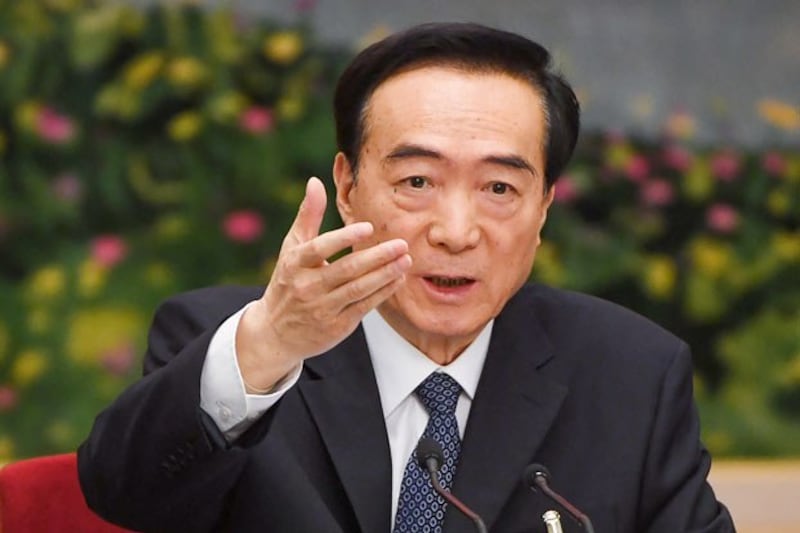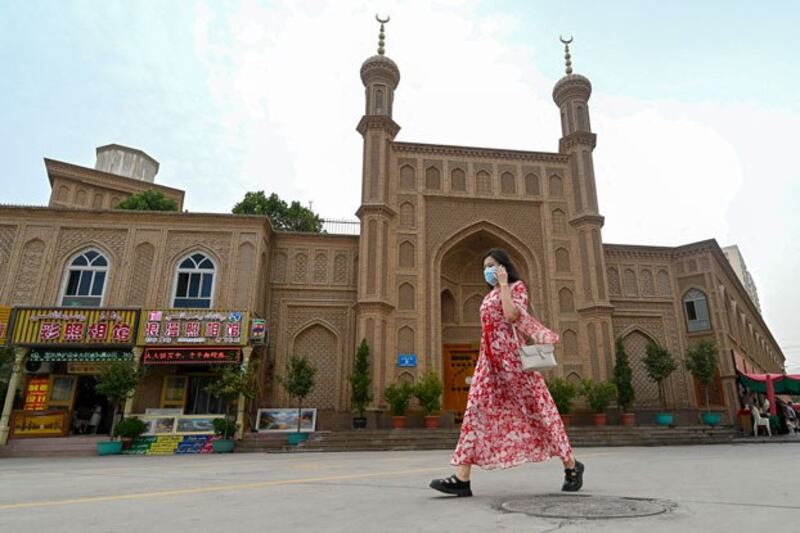In a visit to the far-western region of Xinjiang, China’s security chief Chen Wenqing called for the normalization of counterterrorism policies, which experts said could signal renewed efforts to suppress the more than 11 million Uyghurs who live there.
During his May 22-26 visit, Chen — a former head of China's Ministry of State Security espionage agency — stressed the need for persistent law-based crackdowns on violent and terrorist crimes and called for political and legal bodies to make social stability a top priority, according to Chinese media reports.
On May 27, the day after his visit ended, China’s Ministry of Public Security said in a statement that the country had not had a terrorist attack in more than seven years.

Still, Beijing has made no major policy changes in Xinjiang and remains highly interested in stabilizing the region, said Anders Corr, principal of political risk analysis firm Corr Analytics in New York.
“They continue to prioritize so-called terrorism when there is no terrorism, and there never really were actual terrorists at all in Xinjiang,” he said. “And so, that’s the unfortunate issue when they say that they’re normalizing counterterrorism.”
The Washington-based advocacy group Campaign for Uyghurs said Chen’s call to further normalize counterterrorism efforts suggested continued and possibly increased surveillance, restrictions and arbitrary detentions of Uyghurs.
“Chen Wenqing’s statement is a blatant admission that the Chinese Communist Party intends to perpetuate a permanent campaign of genocide against the Uyghurs,” said Rushan Abbas, the group’s executive director in a statement.
“Instead of addressing international scrutiny, they are doubling down on their efforts,” she said. “The international community must see through the CCP’s propaganda and euphemisms, which justify their horrific crimes as ‘counterterrorism measures.’”

The Chinese government ramped up its suppression of Uyghur and other Turkic peoples in Xinjiang beginning in 2017 with mass detentions of an estimated 1.8 million in “re-reeducation” camps that China claimed were vocational training schools to prevent "terrorism" and "religious extremism."
Because of the mass detentions and other severe human rights violations, including the forced sterilization of Uyghur women and forced Uyghur labor, the U.S. government, European Parliament and the legislatures of the and some Western countries have declared that the measures constitute genocide and crimes against humanity — accusations denied by Beijing.
Chen Quanguo, Xinjiang's party secretary from August 2016 to December 2021, oversaw the mass imprisonment of Uyghurs. But under Ma Xingrui, China's current Communist Party secretary in Xinjiang, the goal is the "legalization and normalization of counter-terrorism stability maintenance work," said Adrian Zenz, senior fellow and director in China studies at the Washington-based Victims of Communism Memorial Foundation.
“Normalization and institutionalization are very much what the CCP pursues in Xinjiang,” Zenz told Radio Free Asia, referring to the Chinese Communist Party. “Long-term counterterrorism is part of that. This also fits with the continued waves of detentions that we hear about.”
Edited by Roseanne Gerin and Malcolm Foster.
